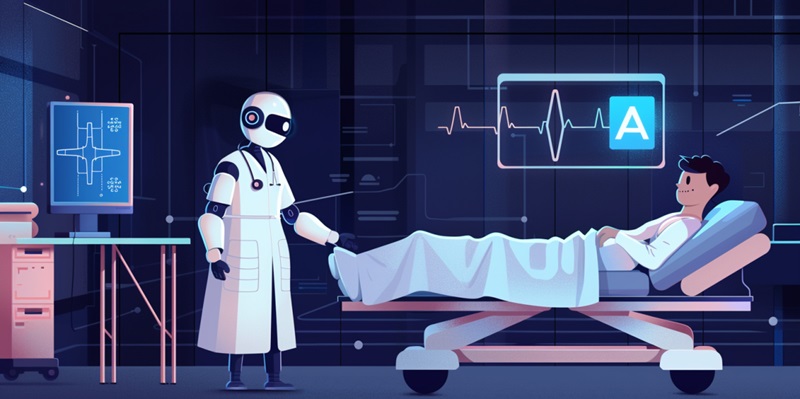The healthcare sector is experiencing a significant transformation thanks to advancements in Artificial Intelligence (AI). AI applications in healthcare promise to improve patient outcomes, optimize therapeutic interventions, and streamline healthcare delivery. AI’s potential touches on nearly every facet of healthcare, enabling clinicians to deliver more precise, efficient, and personalized care. This article delves deep into how AI is not just complementing but also revolutionizing these critical areas.
AI-Enhanced Precision Medicine
Tailoring Treatment to the Individual
AI systems, such as Tempus, are a testament to how AI can analyze vast datasets to unravel complex medical information. By doing so, they facilitate the creation of treatment plans tailored to each patient’s unique genetic makeup, lifestyle, and environment. This approach contrasts starkly with historical one-size-fits-all treatments, moving the medical field toward an era where each patient’s care is as unique as their fingerprint.
Supporting Decisions with Data-Driven Insights
AI acts as a critical tool for clinicians by providing actionable insights drawn from complex data. Machine learning models have the ability to digest and analyze countless medical records, clinical studies, and patient data to help predict outcomes and suggest the most effective treatments. This support, grounded in data, enhances the clinician’s ability to make informed decisions and improve patient care outcomes.
Advancements in Medical Imaging
Elevating Diagnostic Accuracy
Innovations in AI technology have revolutionized the field of medical imaging, with industry leaders such as IBM Watson Health and Google DeepMind at the forefront. These advanced tools are enhancing the accuracy and speed with which clinicians can interpret medical imagery, thereby improving the diagnostic process.
Early Disease Detection Technologies
Early detection of disease is one area where AI’s impact is potentially life-saving. Innovators like Zebra Medical Vision are focusing their efforts on developing algorithms that can detect diseases from medical imaging before they become apparent to the human eye.
Remote Patient Monitoring and Telemedicine
Real-Time Data Analysis and Intervention
AI is revolutionizing remote patient monitoring by offering real-time data analysis that is crucial for managing chronic conditions. The integration of AI in healthcare means that patients with ongoing health issues can have their health status monitored around the clock.
Expanding Accessibility to Healthcare Services
AI-driven telemedicine has been revolutionary for patients in remote or underserved areas, providing them with access to healthcare services previously out of reach. Virtual visits, powered by AI, enable physicians to diagnose and treat patients who cannot physically attend a clinic or hospital.
Streamlining Administrative Tasks in Healthcare
Automating Routine Processes
Artificial Intelligence (AI) is transforming healthcare administration by automating routine tasks like scheduling, record management, and insurance processing.
Enhancing Efficiency in Healthcare Service Delivery
Artificial Intelligence (AI) is revolutionizing healthcare by streamlining cumbersome administrative tasks, thereby enhancing service delivery.
Accelerating Drug Discovery with AI
Mining Data for Treatment Pathways
In the pharmaceutical arena, AI is rapidly transforming drug discovery, a traditionally lengthy phase. Leveraging vast datasets, AI tools are streamlining the search for viable compounds, elucidating disease processes, and providing predictive insights.
Collaborative Medical Research
AI is revolutionizing the field of medical research through the creation of shared, collaborative environments that still prioritize patient privacy.
The Synergy of AI in Modern Healthcare
Predictive Health Management
Artificial Intelligence (AI) is revolutionizing healthcare by shifting the paradigm from reactive to proactive care. This new model focuses on anticipating and preventing health issues before they arise by employing AI algorithms to detect risk factors early on.
A Comprehensive Shift Towards Patient-Centric Care
AI’s role in healthcare is transformative, reshaping the patient care experience at every level. This technology champions a more individualized approach to medicine, aligning with a patient-centric model that prioritizes personal health outcomes.

